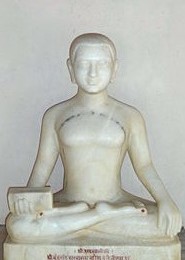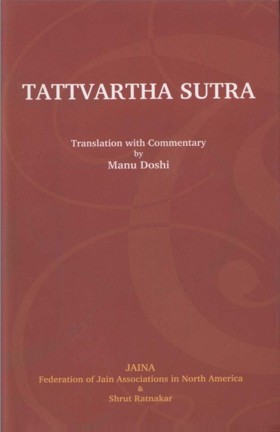07.33 Anugrahārtham Swasyātisargo Dānam
Audio: Sanskrit: अनुग्रहार्थ स्वस्यातिसर्गो दानम्।
Hindi: अनुग्रह के लिए अपनी वस्तु का त्याग करना दान है।
07.34 Vidhidravyadātrpātravisheshāttadvisheshah
Audio: Sanskrit: विधिद्रव्यदातृपात्रविशेषातद्विशेष।
Hindi: विधि, देय वस्तु, दाता और पात्र की विशेषता से दान की विशेषता है।
07.33-34
English: Giving up one's belonging for the sake of others constitutes charity. Its significance depends upon the method, article to be given and worthiness of the donor as well as the recipient.
These two sutras deal with chanty or donation, which is termed as Dan. Charity involves giving up something and that is considered a virtue by all the religions. Jainism, however, attaches a special importance to donation, which is treated as the foremost among the four wholesome aspects, viz. Dan (donation), Sheel (conduct), Tap (austerities) and Bhāvanā (mode). These four aspects are considered as essential for the laymen. Moreover, Jainism attaches a special significance to the approach of the giver.
Sutra 33 defines charity as giving up something of one's own for the benefit of others. In addition to benefiting others the charity also benefits the donor himself. By resorting to charity, one earns the wholesome Karma, which provides favorable situations sooner or later. Moreover, charity has invisible benefits. Everything that one has is temporary. As such, none of the so-called possessions truly belongs to anyone. The sooner one realizes that, the better for him. He should therefore be willing to give up not for others, but do it in his own interest. Charity enables him to do it. That itself is the greatest benefit.
Sutra 34 states that the significance of charity lies in the manner of donation, the article offered in donation, donor's approach and the recipient's worthiness. The time, place and the mode, in which a donation is made, are obviously significant. If something is offered at the wrong time or wrong place, it loses its importance. Similarly, one should offer what the recipient needs. If, for instance, one needs medication and if food or clothes are offered to him, that would not serve the purpose. Moreover, the person offering the required material should do it willingly and wholeheartedly. He should not harbor any sense of disregard or contempt for the recipient, nor should he be offering out of fear or any other compulsion. If he offers because of some visible or invisible compulsion, his donation would lose its significance. The last aspect is recipient's status. The more worthy is he, the greater would be the significance of donating to him.
 Acharya Umaswati
Acharya Umaswati
